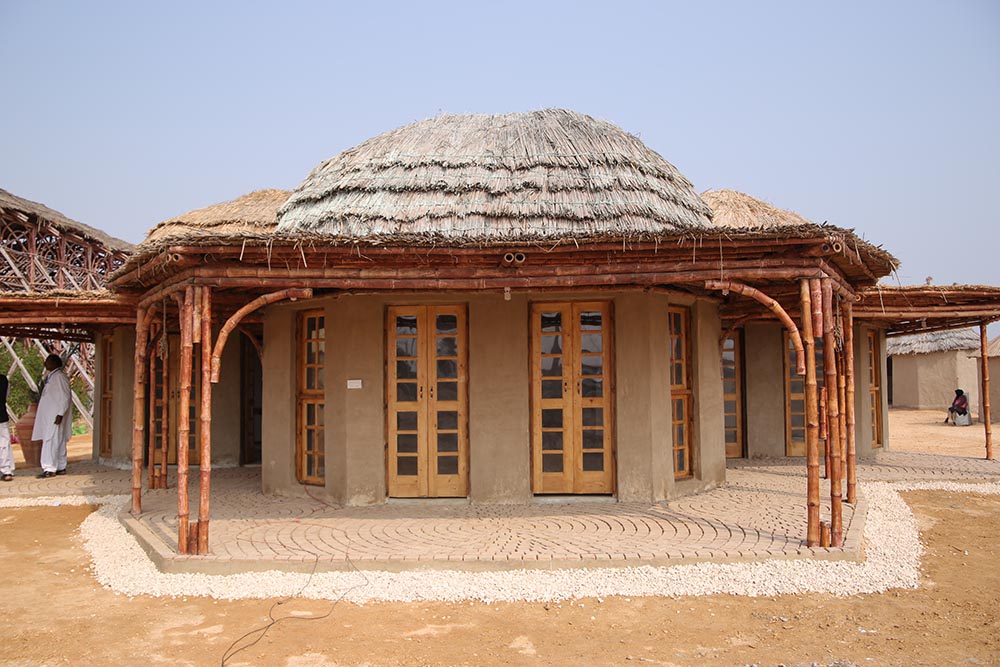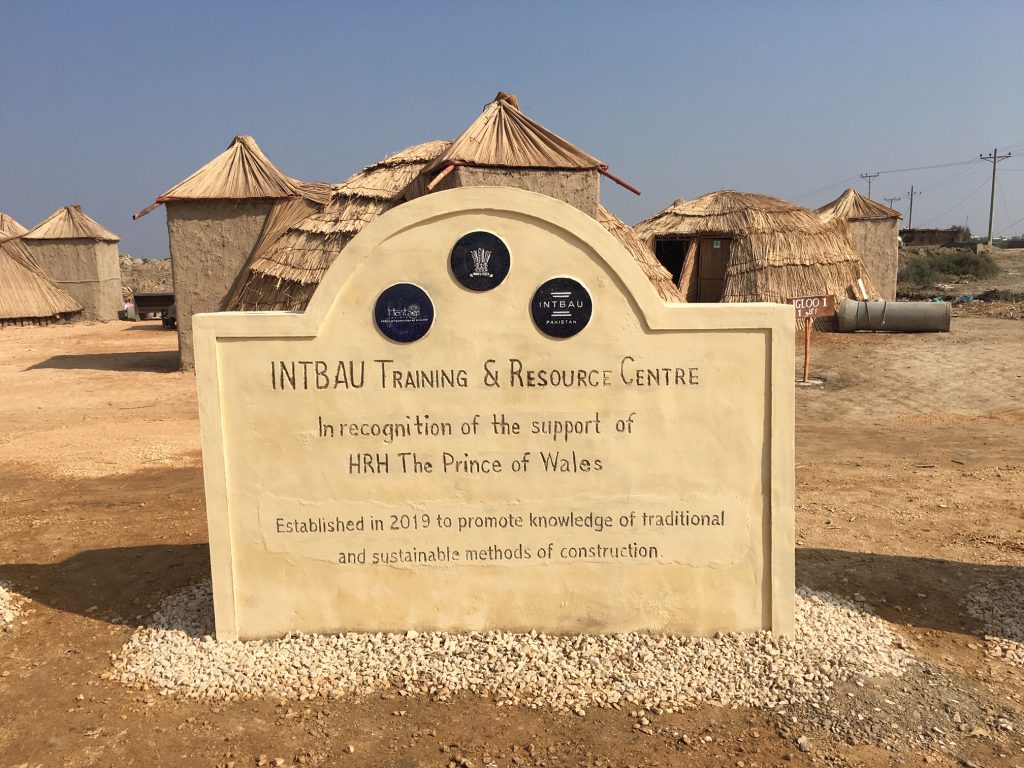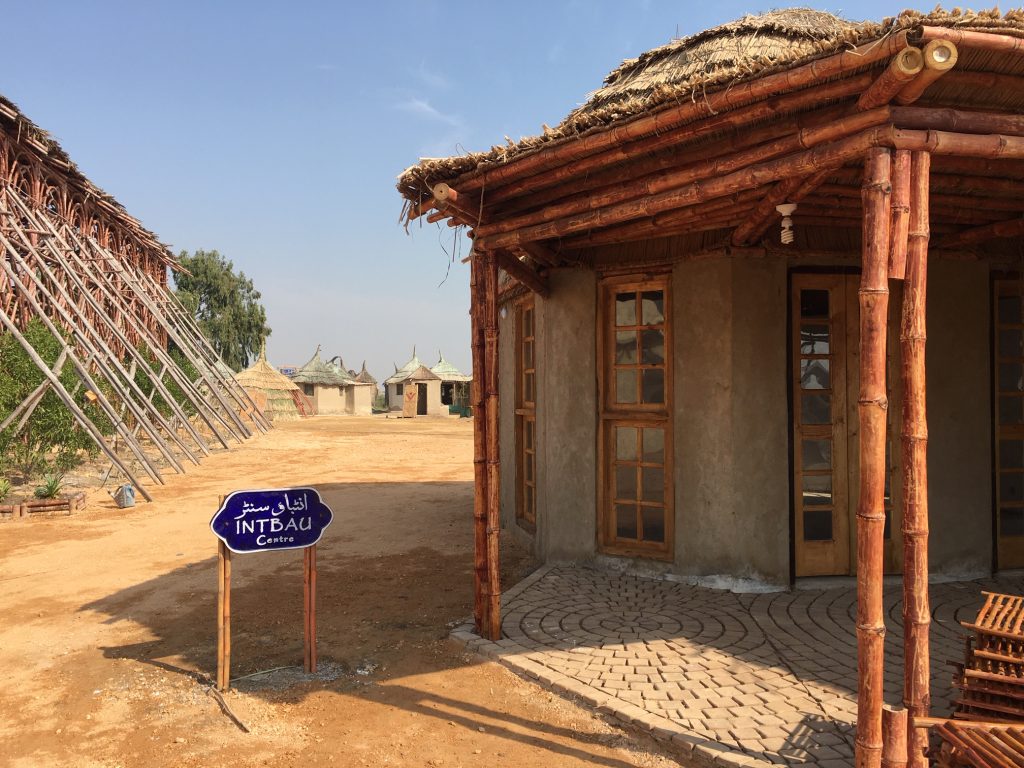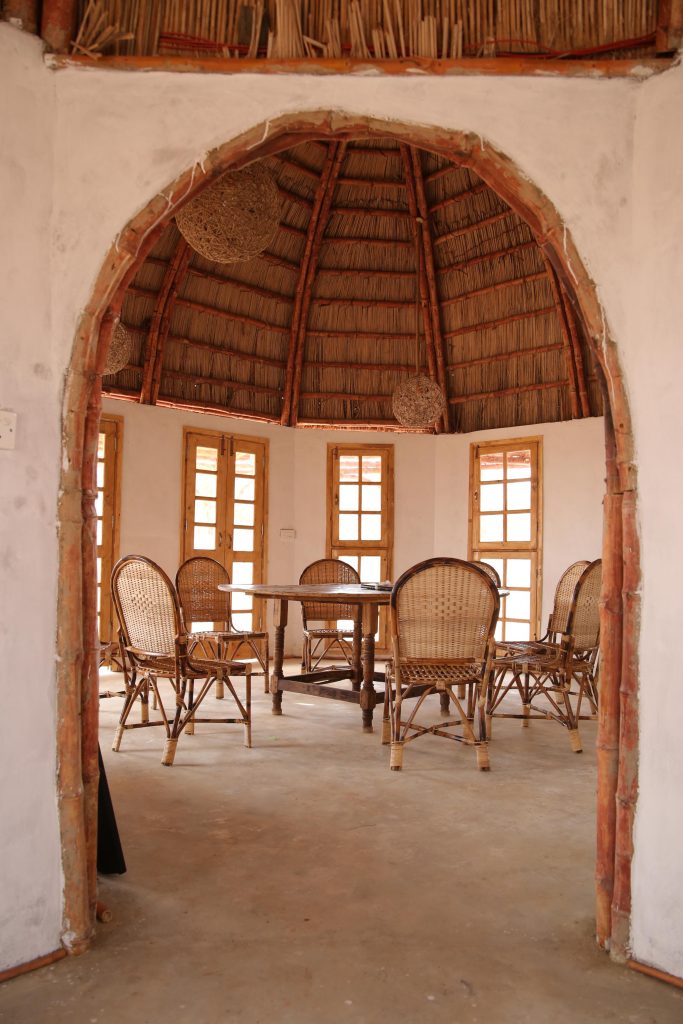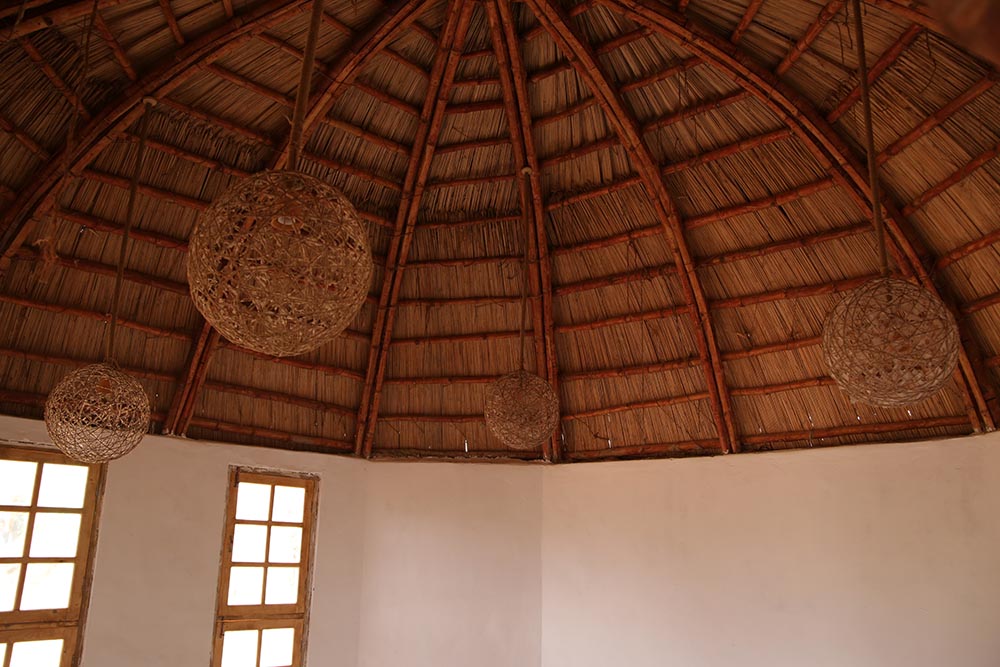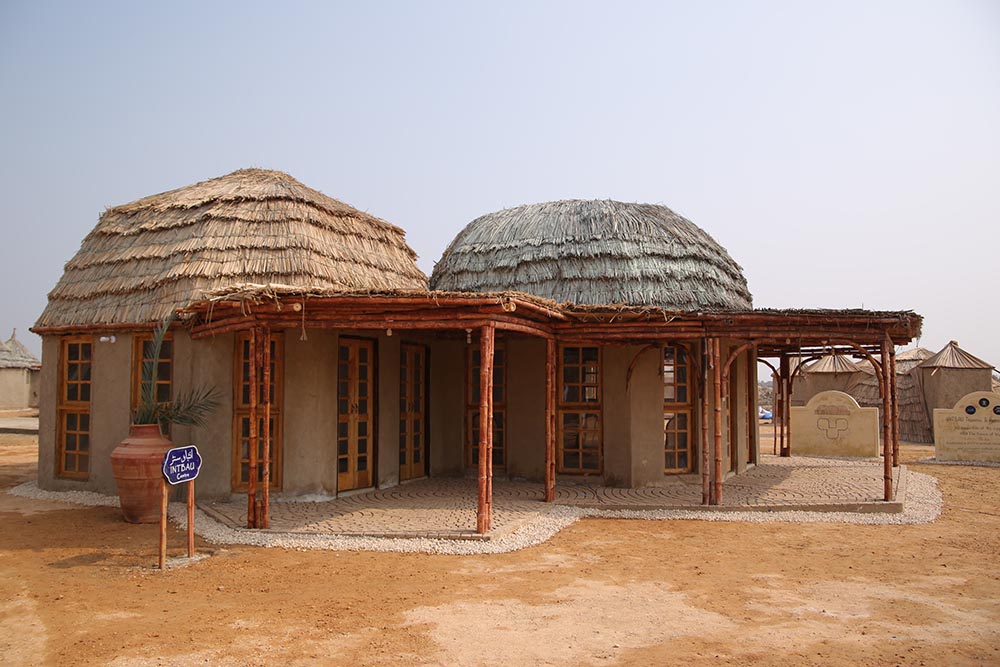It is with great excitement that we announce the construction of a new INTBAU Training and Resource Centre at The Heritage Foundation of Pakistan‘s ZC3, Zero Carbon Cultural Centre. The building of the Centre has been made possible thanks to the generous support of The Prince of Wales’ Charitable Fund.
The erection of this building will ensure that the site has a building dedicated to ongoing education, and one which will permanently house materials from our international network. INTBAU Pakistan and Yasmeen Lari have also ensured that Makli will be the site of continuing education of marginalised communities across Pakistan.
The Training and Resource Centre will contain a lecture theatre, library, and study space. Students and visitors to Makli and students will be able to sit in the shade of the verandah which envelopes the structure and look out over the complex and the neighbouring buildings.
The space is not only versatile, but is to be built in the same carbon neutral materials as the accommodation for conference delegates. Prefabricated bamboo panels will be rendered with lime, mud, sand and plaster and built in three conjoined octagonal pods. Details of the plans: the elevation and the cross section are available here. There will also be a plaque to honour the contributions made by the Prince of Wales.
I asked Yasmeen Lari to comment on how she envisioned the Centre would be used:
“The Centre will help to expand the activities of Zero Carbon Cultural Centre (ZC3), built for training and recreational activities of Barefoot Incubatees for setting up social enterprises for BOP (Bottom of the Pyramid). In addition to becoming a residential campus for accommodating participants from various parts of Pakistan and abroad, as a depository it will provide access to publications and digital material contributed by INTBAU chapters and other organisations fostering social and ecological justice.”
When asked who specifically would benefit, Yasmeen replied:
“The centre will facilitate holding regular workshops for practitioners and students in zero carbon methodologies. By developing collaborative arrangements with universities at home and abroad, especially through INTBAU network, it will promote hands-on field work as well as research into sustainable materials, climate smart traditional / vernacular techniques and zero carbon methodologies.”
Finally, I asked her, who was actually building it?
“Local artisans,” she replied, “and those who have been trained as part of Heritage Foundation’s Barefoot Incubator for Social Good and Environmental Sustainability, are building the Centre. Some are specially skilled in construction of bamboo curved forms and techniques of thatching utilising local grass. The walls, consisting of prefabricated bamboo panels, lined with reed matting and lime stabilised mud plaster, are fabricated by a village of former beggars, now known as Baans (Bamboo) Village. Several in the community have been trained in bamboo assemblies with support from British Council’s DICE (Developing Inclusive Creative Economies) program.”
Yasmeen is rightly optimistic about what the future holds for the local community in Makli. The INTBAU Centre will catalyse a long term educational programme that will enlighten those most in need and the wider international community, interested in researching into the use of natural sustainable materials in new projects across the globe.
The Centre will have a key role in helping to forge international research partnerships, with the end goal being to promote the design of honest buildings that really do help to reduce our carbon footprint.
